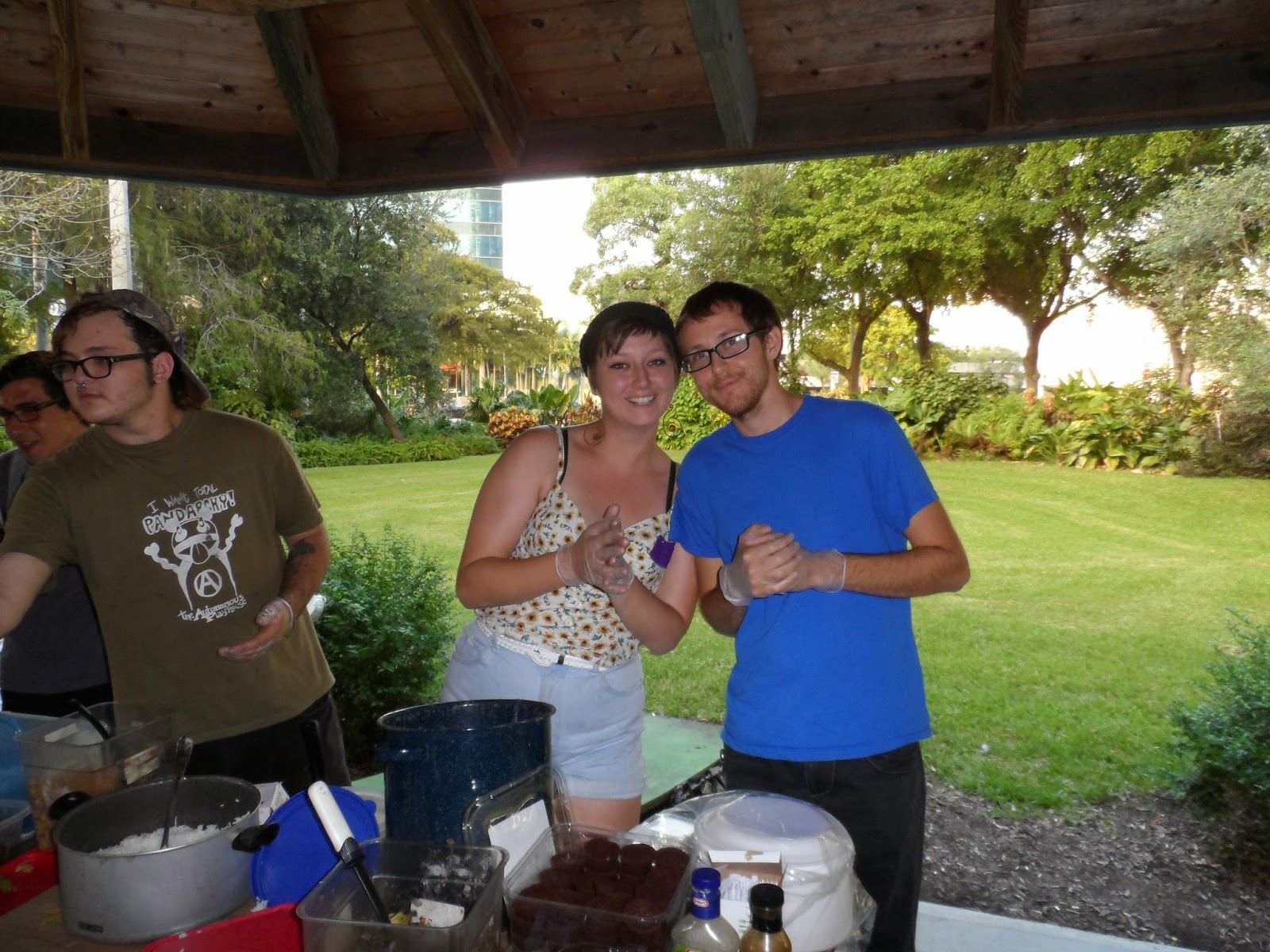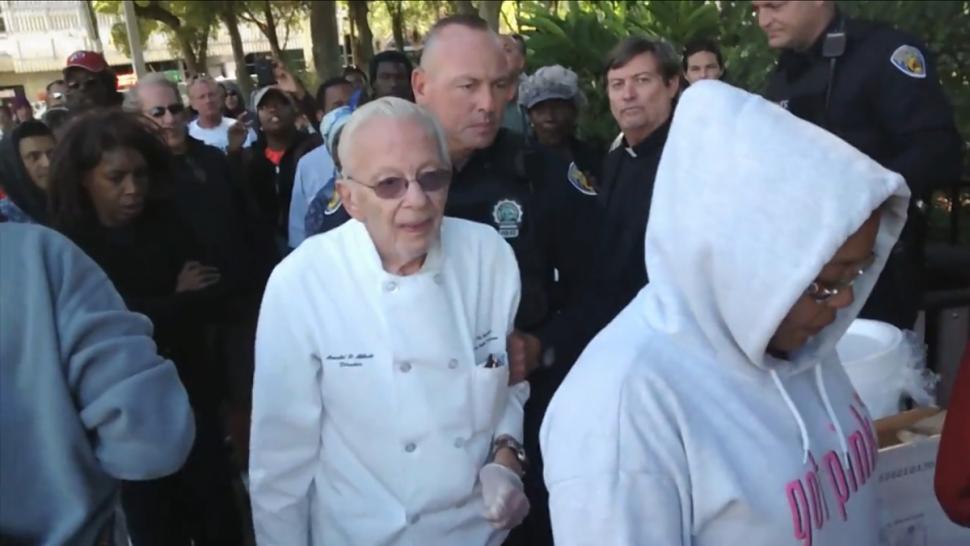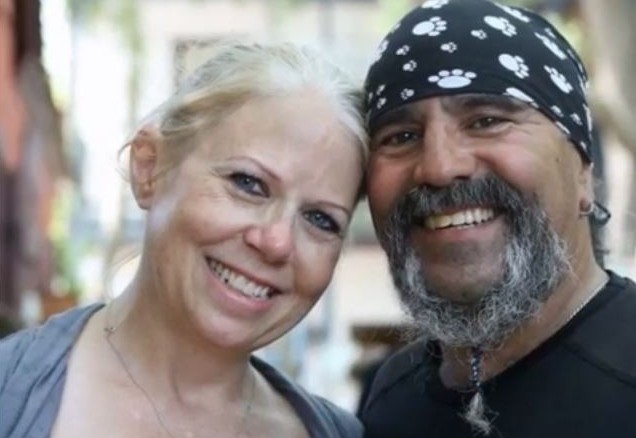
Florida residents are outraged over Fort Lauderdale citizens being arrested for feeding the homeless.
The controversy is also the reason dozens of e-mails were recently sent to Ocala Post about the homeless that have arrested in Ocala, and charged with Open Lodging.
Many have turned to social media, blasting Fort Lauderdale officials, accusing them of trying to rid the city of its homeless population.
Ocala Post investigated and found Fort Lauderdale is not the only city in Florida, or the only state, to impose a Public Food Sharing Ordinance which prohibits the feeding of homeless people in public places.
In the most recent arrest, which occurred on November 7, 2014, Fort Lauderdale Police arrested a 17-year-old, Nikki Rye, 25, and an unidentified male. All three were arrested and charged with violating the city’s Public Food Sharing Ordinance. They were serving food to the homeless at Stranahan Park.

When Rye refused to stop feeding the homeless and would not produce her identification, police put her in handcuffs.
One officer told the 17-year-old to, “Cease feeding immediately.”
The 17-year-old said, “I am embarrassed to call Fort Lauderdale my home, I am disgusted that the officers put their hands on me.” He went on to say. “I thought it was a sick joke. They can’t stop me from feeding the homeless.”
On Wednesday, November 5, 2014, police cited two ministers and a 90-year-old man, identified as Arnold “Chef” Abbott, for organizing and feeding the homeless in a Fort Lauderdale park near a Beach. Police said, “Instead of taking Mr. Abbott to jail, we fingerprinted him at the scene and wrote him a citation, and notice to appear before a judge.” This was not Abbott’s first run-in with the police over feeding the homeless.
Abbott said he was threatened with 60 days in jail if he continued to feed the homeless.

Fort Lauderdale Mayor Jack Seiler has received more than 2000 e-mails criticizing the ordinance.
“If you are going to simply feed them outdoors to get them from breakfast to lunch to dinner, all you are doing is enabling the cycle of homelessness. We are not going to stop enforcing the law just because it has got the attention of the media,” Seiler stated in an e-mail.
Seiler claims the ordinance is meant to protect the citizens of Fort Lauderdale as well as the homeless. He said it is not meant to reduce the homeless population. “I believe Fort Lauderdale residents will stand by me on this,” Seiler said.
Abbott disagrees. “The mayor is trying to rid the city of its homeless people,” Abbot said. “Seiler and the rest of the city commission are the puppets of business owners who want to run the homeless out of town …or at least not have to see them. If we cannot feed the homeless they will resort to dumpster diving… and possibly try to steal food.”
City officials said the new ordinance would protect the city. They say it would help prevent homeless people from urinating and defecating in parks, on beaches, and under bridges. It will also help keep the city clean of trash left behind after the feedings have ended.
“I want the homeless to utilize government and church services to get help,” said Seiler.
Abbott said he was treated like a criminal. “One officer that came up said, ‘Drop that plate now,’ as if I were holding a weapon.”
Daytona Beach has the same ordinance in place. In May 2014, a husband and wife who have been feeding the homeless at Manatee Island Park for a year, were banned from the park after police cited them for illegally feeding a crowd.
Chico and Debbie Jimenez, and their volunteers, were cited by police.

“The ordinance is there, so if we catch you, we’re going to cite you,” Police Chief Mike Chitwood said. “If you want to feed people, and you want to do a good, Christian act, we encourage you to coordinate with the social service agencies.”
Chico quit his job as a construction manager and Debbie quit hers as a manager of an auto-parts store to open a ministry. They said their ministry helps in ways other than just feeding the homeless.
Through donations, they have paid electric bills, water bills, and rent. They have also purchased backpacks, clothes, and bicycles for people.
Diane Clester, one of the volunteers, said, “If we were criminals, it would be one thing, but we’re not. And when we leave the park, there isn’t a scrap of paper on the ground, not one thing.”
“Within an hour and a half, we are done and gone,” she said.
“We allow anyone to eat that is hungry. You don’t have to be homeless. If you are hungry, eat,” Debbie said. “Our home-cooked meals are better than any of the food served at shelters. We have made so many good friends since we started doing this.”
The citations cost the Jimenez’s and their volunteers more than $2,000.
Orlando, Florida; Birmingham, Alabama; St. Louis, Missouri, and at least 30 other cities are just some that have enacted or attempted ordinances aimed at the homeless.
After several people in Orlando were arrested for feeding the homeless in Lake Eola Park; protesters gathered with signs that read “Food Not Bombs.”
Mayor Buddy Dyer ultimately had the charges dropped.
Ocala does not have an ordinance that prohibits citizens from feeding the public; however, the city does have an ordinance against open lodging — as do many cities. Over the past several months, dozens of homeless people have been arrested for open lodging within Ocala city limits. Two were arrested just this past weekend.

The cases have created a serious divide between local government and its citizens.
Officials said, “What the public needs to realize is many of the homeless people chose to be homeless. They chose to live off the grid, and many of them are criminals; some have been convicted of violent crimes. The ordinance is meant to help the homeless as well as protect the individuals around them.”
A group in Fort Lauderdale said they would continue to feed the homeless until the mayor realizes his arrogance. One of the arrested said, “This is clearly a way for the city to take out what they consider trash. The only people I see that agree with the ordinance are the rich.”
Abbott sued the City of Fort Lauderdale in 1999 after they tried to stop him from feeding the homeless on a public beach. Abbott won the case three times in circuit court and twice in the court of appeals.
The Fort Lauderdale Public Food Sharing Ordinance was passed by the commission on October 21, 2014.
“The city has waged war against the poorest of the poor,” Abbott said.
Seiler said there will be more arrests if people continue to feed the homeless and violate the ordinance.
Abbott said a lot of the homeless people in his area are military veterans. Many of them are injured, suffer from PTSD, or other mental illnesses. They fought for our county to end up forgotten and on the street he said.
Abbott, a second world war veteran himself, and founder of the interfaith Love Thy Neighbour non-profit group, said he would continue to try to feed Fort Lauderdale’s homeless and planned to file a lawsuit against the city to try to get the ordinance overturned.
We want to hear from you. What do you think? Is the city protecting the homeless?
